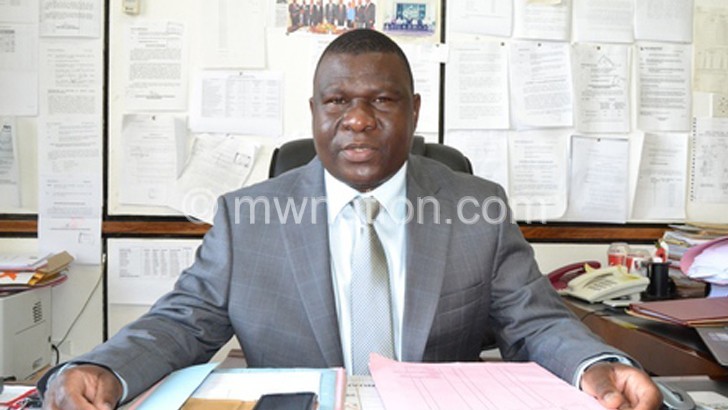‘Malawi racing against KIA ban’
The International Civil Aviation Organisation (ICAO) recently issued a warning that Kamuzu International Airport (KIA) could risk being blacklisted and, therefore, being banned for failing to meet international standards on safety and security of air travelers. Our reporter WATIPASO MZUNGU caught up with the Director of Civil Aviation, Alfred Mtilatila, to find out what government is doing to avert the ban and other issues.

Q
What is government doing to escape the impending blacklisting and ban of the country’s airports?
A
Government has embarked on addressing the deficiencies identified during the audits through various interventions such as initiating infrastructure development projects through the Public Sector Investment Programme such as acquisition of airport navigation equipment, acquisition and modernisation of fire fighting equipment and geodetic system. In addition, government has secured assistance from other development partners to improve the existing infrastructure and also provide modern aeronautical equipment at both Kamuzu and Chileka International airports.
Currently, Government of Japan through Japanese International Cooperation Agency (Jica) has provided resources with the objective of rehabilitating the terminal building at KIA—a project which is already underway. Another intervention is being provided through a European Investment Bank (EIB)-funded project which seeks to provide essential safety and security equipment in the two primary international airports to improve safety and security of airport operations in accordance with the standards and recommended practices set out in the various annexes to the Convention on International Civil Aviation.
Q
Is the Japanese grant adequate for the whole project?
A
Indeed, the Government of Japan has provided a Grant Aid amounting to $35 million (about K25 billion) towards rehabilitation of Kamuzu International Airport Terminal Building. This amount is covering the scope of works comprising expansion of passenger terminal buildings, rehabilitation of existing passenger terminal buildings and installation of aircraft surveillance system. The Grant Aid provided by Government of Japan is adequate to cover the scope of works earlier mentioned and according to the conditions of the grant aid, Government of Malawi has provided K97 million as counterpart funding towards the preparatory works for the entire project.
Q
When will this project start and when should we expect it to finish?
A
Preparatory works for the project commenced in December 2016 and were completed by mid-March 2017. The works involved relocation of electrical floodlights and underground piping, removal of asphalt pavement on the construction sites, preparation of radar equipment control room. The main construction commenced end-March 2017 on the three sites for expansion of the international departure wing, international arrival wing and domestic terminal. Works for the whole project are envisaged to be completed by March 2019.
Q
Apart from avoiding the blacklisting and ban, how will the improved KIA facility contribute towards economic development and tourism in the country?
A
First, the rehabilitation project will enhance passenger facilitation through the expansion of passenger handling capacity at the airport thereby increasing the number of passengers capable of being handled through the airport. This improvement is a catalyst for increased passenger throughput at the airport including tourists destined for Malawi. Increase in passenger handling capacity will also facilitate capability of the airport to handle a lot of flights without compromising efficiency in passenger facilitation. Therefore, government will benefit from increased revenues generated through passenger service charge, landing and navigation fees culminating from increased flight frequencies.
Second, with an increased number of tourists coming into Malawi, the tourism industry will also benefit from the increased tourist base who shall be patronising the tourist attraction centres throughout the country. Cognisant that the project will also entail installation of aircraft surveillance radar equipment, this will increase the safety margins of Malawi airspace, hence, attracting more air traffic transiting our airspace. Since transiting aircraft are charged air navigation fees, an increase in this type of traffic will also benefit government by increasing revenues collected from the air navigation fees. Apart from the safety and economic benefits outlined, the surveillance system will also enhance security of the airspace since the air traffic controllers will be able to monitor all aircraft operating in our airspace and have capability of isolating aircraft using Malawi airspace without authorisation. n





